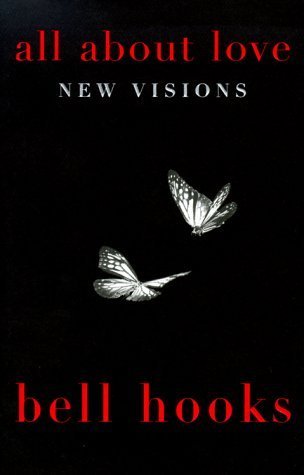Do we really understand the word love? What do we mean by it? I think this book made me realise that what we thought we figure out and commonly understood unless in common sense is not a common sense at all. All about love by bell hooks is an exploration of its meaning and how it can be transformative.

Title: all about love
Author: bell hooks
Published: December 22, 1999
Genre: Essays, Feminism, Love, Nonfiction, Philosophy, Psychology, Relationships, Self Help, Sociology, Spirituality
Rating: 🌟🌟
Summary
All About Love offers bold new perspectives on love, revealing its deep connections in both our private and public lives. This book consists of eleven concise chapters where bell hooks explains how our everyday ideas of giving and receiving love often fall short, rooted in early childhood experiences. She redefines self-love—not as narcissism—but as a source of peace and compassion that can enrich our personal and professional lives.
Review
This book has explored love in different areas which i think should be given merit—intimate relationships, family and gender dynamics, and even larger social structures like governance and community care.
What I feel strongly about in this book is her optimistic view of how love can be a factor in creating a great society. Hooks suggests that a genuine sense of love and connection inspires us to consider the welfare of others. This compassion can lead to drafting bills and rights that promote social well-being, as we naturally feel compelled to protect and care for those we love.
I understand that sentiment. For instance, love can fade when your partner stops treating you right or when basic needs aren’t met—such as when they refuse to support the family, which is their responsibility. In these situations, people often say that love can’t feed you or sustain you. But from hooks perspective, if your partner doesn’t feel the need to protect the welfare of the family, then that love may not truly exist.
Ultimately, Hooks is trying to convey is that loving everyone, and having that love reciprocated, creates a world where people genuinely care for each other, which leads to greater well-being for everyone.
Interestingly, this book addresses our current “me” culture, which arises from a lack of connection and love. In trying to fill this void, we often turn to overconsumption. This exploration of love in today’s context is somewhat enlightening, but it would be even stronger with clearer examples or studies showing how fostering this connection can make actually make a real difference.
Overall, this book presents an overly idealistic view of love, suggesting that loving others can solve all problems. While love is a powerful force, it can’t be a universal solution for every issue. Additionally, relying on anecdotal evidence doesn’t necessarily validate the arguments made. We need rigorous research and a broader range of examples to support such claims, as the current generalizations are based on a limited sample size.
Final Thoughts
This book, among other nonfiction self-help books, really needs a damn good extensive research reference to persuade me or anyone. But I also don’t want to completely remove its knowledge or impact on its readers. I think its bold claim about love and how we may not truly understand it holds some truth, because love is a complex emotion that is hard to quantify. But bell hooks isn’t really the authorative figure who could give you a factual definition of love. So read this book with a grain of salt; this isn’t peer-reviewed research, and it can be interpreted in many ways since our experiences of love vary greatly.
I would recommend this to readers who may be having a hard time understanding the world of love. This could be your gateway to exploring love in a more research-based way.
If you have stumbled upon this book, let me know what is your greatest takeaway from this book! 🤔
Leave a Reply